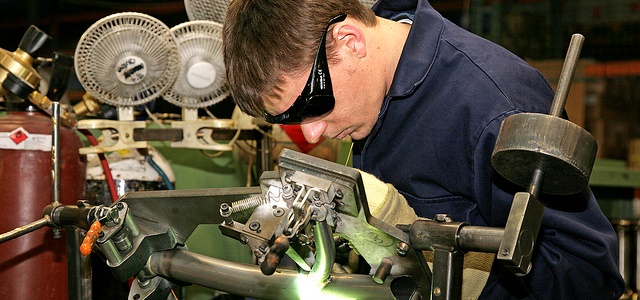 When analyzing higher-skilled guest worker visa programs, such as the H-1B and L-1 programs, critics often fail to acknowledge the very different and important purposes that these programs were designed to serve, and the complicated requirements already in place to protect against abuse or exploitation. There is no denying that we can and should improve these programs and the strategies used to enforce them. However, given the well-established economic benefits of these programs, and the challenges employers face finding highly skilled workers, particularly in technical fields, it is essential that any proposed reforms not impose restrictions that may make these programs completely unworkable.
When analyzing higher-skilled guest worker visa programs, such as the H-1B and L-1 programs, critics often fail to acknowledge the very different and important purposes that these programs were designed to serve, and the complicated requirements already in place to protect against abuse or exploitation. There is no denying that we can and should improve these programs and the strategies used to enforce them. However, given the well-established economic benefits of these programs, and the challenges employers face finding highly skilled workers, particularly in technical fields, it is essential that any proposed reforms not impose restrictions that may make these programs completely unworkable.
The current H-1B visa program is designed to provide companies with an efficient mechanism to hire skilled professionals that complement the U.S. workforce and enhance economic competitiveness. The program includes a host of restrictions and gives the government broad enforcement authority to guard against abuse. In order to use the program, employers are required to pay high filing fees: $2,325 per application for for-profit employers with 25 employees or more, and as much as $5,325 for “H-1B dependent” employers. Policies and regulations have been adopted and amended over the years to strengthen protections of U.S. workers’ wages and working conditions that require employers to pay H-1B workers the prevailing wage or actual wage paid to U.S. workers, whichever is higher, and by requiring that H-1B workers receive the same benefits. They also discourage displacement of U.S. workers by requiring notification of union representatives and forbidding the hiring of H-1B workers in case of a strike.
As opposed to a new hiring program, the L-1 visa program is designed to allow multi-national companies to transfer existing executives (L-1A) or specialists (L-1B) that have gained essential experience working for the company abroad. These visas allow international companies like Honda and Toyota to bring experienced employees to the U.S. to help them improve their operations and to share knowledge and experience within the company. The L-1A visa allows them to bring in executives with experience running their operations to establish and expand job-creating businesses. The L-1B visa allows them to bring in specialists with advanced skills that are specific to the company’s products or services. Employers are required to show that L-1B workers have unique skills not readily available in the U.S. labor market in order to guard against any displacement of U.S. workers. The L program can also be expensive, with filing fees as high as $3,075 per application.
U.S. Citizenship and Immigration Services (USCIS) has dramatically tightened the oversight of these programs in recent years, and while there is no denying that abuses occur, there is little evidence to suggest that abuse is common or widespread. In 2010 over 14,000 H-1B cases were audited, according to a report by the National Foundation for American Policy, and only 1 percent of cases were referred to a fraud investigation. USCIS has also made it increasingly difficult for employers to get H and L applications approved, with 63 to 90 percent of L-1B applications in 2011 being delayed or ultimately denied. Denials of other, less-common work visas, such as the O visa for workers of “extraordinary ability”, have also increased.
Despite the strict requirements already in place and the adoption of stricter enforcement, the proposed Senate immigration bill adds even more restrictions and requirements. For example, the bill would require employers to pay H-1B workers significantly more than the current prevailing wage in their field, often requiring them to be paid more than their U.S. colleagues. It also seeks to add more requirements dictating or limiting how employers must recruit, hire, fire, or transfer employees. The critical question that must be asked, and that must continue to be examined if the reforms are adopted, is whether these reforms limit the effectiveness and usability of the programs by making them even more expensive, complicated, and risky.
There is no question that we can and should improve and strengthen the regulation of skilled worker programs. Employers should treat foreign workers and U.S. workers equitably and should be required to make good faith efforts to hire U.S. workers first. Allegations of abuse must be taken seriously, but so too should the concerns that some of the proposed restrictions appear excessive, redundant, vague, and in some cases impractical. The challenge of any reforms to these programs is to strike the right balance between enforcement and efficiency. If these visa programs become prohibitively onerous or get bogged down in bureaucracy they will fail in their intended purpose of allowing companies to more effectively compete in the global marketplace of ideas and talent.
Photo Courtesy of Bisgovuk.
FILED UNDER: H-1B, High Skill Workers, High Skilled Immigrants, immigration legislation, L-1A visas, L-1B, Senate, temporary high-skilled visas, USCIS, Visas


